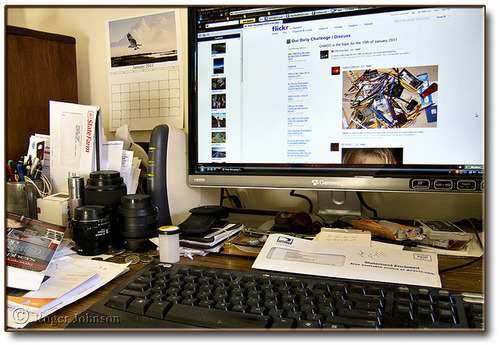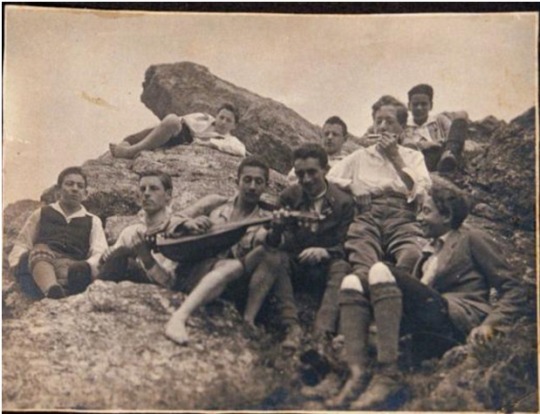Profiles of select Jewish organizations from the second half of the 20th century
by Ilana Rossoff, Reference Services Research Intern, Center for Jewish History
In March 2012, the YIVO Institute for Jewish Research and the American Jewish Historical Society, partner organizations of the Center for Jewish History, co-hosted a two-day symposium on “Jews and the Left” featuring scholars from many different fields to discuss the historical relationship between Jews and leftist movements. Presenters discussed such topics as the roles of Jews in Marxist movements in Europe and the United States, Marx and “the Jewish Question,” the relationship between anti-Zionism and anti-Semitism, and uniquely Jewish approaches to leftist politics. The symposium, which can be viewed online here [1], offers a thorough overview of an important segment of Jewish contributions to social welfare and social change.
As was discussed in the symposium, American Jews have played notable roles in American leftist movements throughout the last century and a half. With the wave of mass immigration from Eastern Europe in the late 19th and early 20th centuries, Jewish immigrants, many of whom were involved in revolutionary movements in Eastern Europe, became involved in the burgeoning labor unions and socialist organizations of the early 20th century.
During the second half of the 20th century, a new wave of socially-concerned activists emerged around the United States to address such issues as civil rights, militarism, gender equality, environmentalism, and others. Many Jews joined their ranks, some as veterans of the earlier labor movements and some as first-time activist youth. At the same time that Jews were active in such organizations, there arose numerous specifically Jewish organizations that addressed a variety of social justice issues of the time, some directly related to Jewish communities, and others related to non-Jewish populations in the U.S. or around the world (from a uniquely Jewish vantage point).
As part of my internship with the Center for Jewish History, I did a research project for which I wrote a series of articles on four Jewish organizations that were active between the time of the 1950s/60s and the 1990s on issues related to social justice. I was interested in learning about the work that they did, from whom and where the organizations originated, and what their Jewish approach to social justice looked like. My goal was to give a glimpse of organizations’ overall histories while ultimately trying to discern their motivations and assess the extent to which their work impacted the welfare of Jews and/or non-Jews.
Each Monday for the next several weeks, the 16th Street blog will feature one article from my “Jews and Social Justice” series. The series will include:
Jewish Labor Organizations
I. The Jewish Labor Committee
II. The International Jewish Labor Bund
These entries will focus on two labor organizations, the International Jewish Labor Bund and the Jewish Labor Committee, both of which were founded during the end of the 19th century and earlier part of the 20th century. For this, I will look at the YIVO Archives of the Jewish Labor Committee (1933-1969) [2]; various archival materials from the vast Bund Archives in the YIVO Library such as “Report and resolutions” of the International Jewish Labor Bund World Conference 1985 [3]; books such as The International Jewish Labor Bund after 1945 : Toward a Global History [4]; and as articles on Jewish labor organizations such as “The Bund Abroad in the Postwar Jewish World” [5] and “Labor and the Holocaust : the Jewish Labor Committee and the Anti-Nazi struggle” [6].
Social Justice at Home
III. Jews for Urban Justice
This blog entry will focus on a racial and economic justice organization called Jews for Urban Justice, active in the late 1960s in Washington DC, which targeted Jewish individuals and institutions for their complicity in perpetuating social injustice. I will give an overview of the organization’s history and different programs as well as analyze its ideological platform and its unique position vis-a-vis the Jewish community. To do so, I will look at Jews for Urban Justice archival collection (1967-1970) of the American Jewish Historical Society [7], as well as Torn at the Roots: the crisis of Jewish liberalism in postwar America by Michael E. Staub [8] and other publications.
Israel and its Jewish Critics
IV. American Jewish Alternatives to Zionism
In this entry, I will look at one small organization that expressed explicit Jewish criticism of Zionism: American Jewish Alternatives to Zionism. In doing so, I will look at the activity of the organization, attempt to determine its size and membership, and seek to understand its ideological platform and its impact on its audience. I will look at the American Jewish Alternatives to Zionism collection (1959-1988) from the American Jewish Historical Society archives [9] and “Discordant Voices: The US Jewish Community and Israel during the 1980s” [10].
Conclusion
I will end the series with a piece that reflects on my findings in my research and my experience doing this project as an intern at the Center for Jewish History.
Notes:
[1] Click here to view the “Jews and the Left” symposium.
[2] Jewish Labor Committee archival collection, YIVO Institute archives. The Electronic Finding Aid to the archival collection can be found here.
[5] David Slucki, “The Bund Abroad in the Postwar Jewish World,” Jewish Social Studies, Vol. 16, No. 1 (Fall 2009), pages 111-144. This article can be found in JSTOR and accessed at the Center for Jewish History.
[7] Jews for Urban Justice archival collection, American Jewish Historical Society archives. The Electronic Finding Aid to the archival collection can be found here.
[9] American Jewish Alternatives to Zionism archival collection, American Jewish Historical Society. The Electronic Finding Aid to the archival collection can be found here.
[10] Jonathan Marcus, “Discordant Voices: The US Jewish Community and Israel during the 1980s” International Affairs (Royal Institute of International Affairs 1944-), Vol. 66, No. 3 (Jul., 1990), pages 545-558. This article can be found in JSTOR and accessed at the Center for Jewish History.


